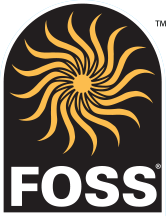Author: Hailey Mattingly
-

How to Prepare Students for an Upcoming Solar Eclipse
A solar eclipse is a magical event. On April 8, 2024, schools and communities across America will gather to witness a total solar eclipse. The last time there was a total solar eclipse in the US was in 2017. The upcoming eclipse in April is expected to last twice as long for a total of…
-

Access and Equity: Changing How We View and Support All Students
As schools and districts implement the Next Generation Science Standards (NGSS), using three-dimensional learning, focused on figuring out phenomena, there’s another critical piece that needs ongoing attention—making sure we tap into the assets and diverse needs of all students. How do we truly ensure every child is engaged in the science learning experience and developing…
-

Using Science to Sustain Equity and Culture in Today’s Classrooms
Define Equity and Culture There can be uncertainty around how we define equity and culture. The contributors of A Framework for K-12 Science Education: Practices, Crosscutting Concepts, and Core Ideas, published in 2012, acknowledged that educators may struggle to set aside their culture of origin and embrace the ways others engage with science. In updating the…
-

Make Halloween a Day of Engagement with Science
As Halloween approaches, educators know the excitement and fun of the holiday can also bring disruptions to the classroom. In an effort to incorporate learning on such an eventful day, try to make Halloween a day of engagement- with science! Many educators opt for a science-based day of activities with center activities that explore the…
-

Science Instruction Outside of the Classroom
Let’s Take It Outside Re-energize student (and educator) interest throughout the school year with a change of scenery and take students outdoors for science lessons! What better subject than science for teaching outside of the classroom? Benefits of Learning Outdoors Science is the study of the natural world, so there are many opportunities for teachers…
-

Using Science to Launch a New School Year with Parents: Leveraging Inquiry for Back to School Night (BTS) & Open House
Back to School Night & Open House: Setting the Stage for Science Success Whether your school holds Back to School Night before school starts or an Open House several weeks into the school year, incorporating a fun, inquiry-based science activity into your event can be a memorable and exciting experience for both students and parents.…
-

FOSS Summer Leadership Institute
Did you know that FOSS offers professional learning opportunities to enhance your science lessons? The 2023 FOSS Summer Leadership Institute, held just outside Portland, OR, focused on transforming professional learning. Each attendee developed a professional learning plan for the upcoming year, that implements FOSS curriculum in new, exciting ways. Helping make the event a huge…
-

Getting Ready for a New School Year with Science: Tips for Teachers
What’s the goal? Most elementary educators start the school year with 1) classroom rules, 2) English instruction, and 3) math instruction. This can be disengaging for everyone involved and leave science on the sideline. One of the best ways to avoid disengagement from the start of the school year is to begin classroom management on…
-

Building the Future with STEM Education
Can you imagine society without science, technology, engineering, and math (STEM)? These fields form the foundation for many aspects of human civilization, so it’s hard to fathom humanity without STEM. Even if we just consider a specific area of STEM – like energy, or infrastructure – it’s difficult to imagine society working without it. Electrical…
-

Phenomena-Based Instruction: Inspiring Young Scientists
Phenomena in a science class are like oases in a desert: absolutely essential, beautifully vibrant, and rich with creative growth and potential, but unfortunately too uncommon, infrequent, and far apart. Real-world phenomena illustrate scientific principles with remarkable effectiveness, because they help students see why science matters and how it works. Local, relevant phenomena-based teaching engages…
